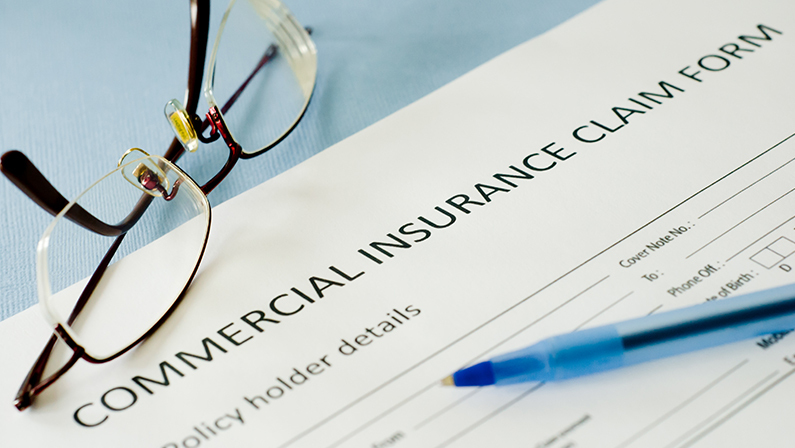Understanding Commercial General Liability Insurance: A Comprehensive Guide
In today's business landscape, unpredictable incidents occur, often leading to financial uncertainty. As a business owner, it's vital to protect your company from potential threats.
One essential safeguard measure is obtaining commercial general liability insurance. This guide will shed light on the importance and mechanics of this type of insurance to help ensure your business's success and longevity.
What is Commercial General Liability Insurance Coverage?

Commercial general liability insurance (CGL) is a type of insurance policy designed to protect businesses from various liability exposures, including lawsuits, injury claims, and property damages caused by business operations or services provided.
This policy covers legal defense costs, settlements, and judgments arising from such claims. By having CGL insurance in place, businesses can mitigate potential financial losses and safeguard their reputation.
What Does Commercial General Liability Insurance Cover?
Commercial general liability insurance covers a broad spectrum of risks that businesses are likely to encounter.
The coverage typically includes:
- Bodily Injury: If a person is injured on your business's property or as your business operations' direct result, CGL insurance can cover medical costs and legal fees.
- Property Damage: CGL insurance provides protection in cases where your business is found liable for damage to another person's property.
- Reputational Harm: In situations where your business faces accusations of libel, slander, or copyright infringement leading to reputational damage, CGL insurance can cover the legal costs and damages.
- Advertising Errors: If your services are held accountable for infringement of others' advertising ideas or copyright violation, your CGL policy will shoulder the financial burden.
It's worth noting that commercial general liability insurance does not typically cover intentional acts or professional errors and omissions. These exclusions necessitate other forms of coverage, such as professional liability insurance.
Who Needs Commercial General Liability Insurance?

Any business, irrespective of its size or industry, can benefit from commercial general liability insurance. Businesses with a physical location, those who work in direct contact with customers, or companies marketing their products or services significantly should strongly consider this policy.
Typical industries that need CGL insurance include:
- Restaurants and hotels
- Retail businesses
- Manufacturing companies
- Real Estate companies
- Contractors and construction firms
How Does Commercial General Liability Insurance Work?
Commercial general liability insurance operates on an occurrence basis. This means coverage applies to incidents that occur during the policy period, regardless of when the claim is reported. When a covered event occurs, the insurance company will provide the legal defense and pay for any resulting damages or settlements up to the policy's limits.
The limits of the policy refer to the maximum amount the insurance company will pay for a single claim or the entire policy period. These limits can usually be adjusted based on the needs and risk level of the business.
In the event of a claim, the business usually pays a deductible, and the insurance company covers the remaining costs up to the policy limit. The business may have to pay out-of-pocket for any costs exceeding the policy limit.
Understanding Exclusions and Limitations
While commercial general liability insurance for contractors indeed offers broad coverage, it's important to understand what it doesn't cover. Every policy has its limitations, and gaining clarity on these exclusions can help businesses plan better for potential risks.
Typically, CGL insurance does not cover the following:
- Damages to your own property.
- Professional errors, negligence, or malpractice (typically covered under professional liability insurance).
- Employee injuries or illnesses (usually addressed under worker's compensation insurance).
- Intentional acts that result in damage or harm.
- Punitive damages in certain states where they are considered uninsurable.
It's crucial to familiarize yourself with the exact terms and conditions of your policy to ensure you have the necessary coverage for all potential risks associated with your business.
How to Obtain Commercial General Liability Insurance?

Securing a commercial general liability insurance policy is a responsible decision for any business owner.
Here are the steps you should follow:
- Understand Your Risks: The first step is to assess your business's vulnerabilities thoroughly. Different businesses have different risk profiles, and understanding your specific needs can help you tailor a policy that provides the right coverage.
- Find an Insurance Provider: Look for an insurance company with solid financial strength and a proven track record of handling claims efficiently and fairly. Do some research, check customer reviews, and don't hesitate to ask for recommendations.
- Consult an Insurance Agent: An insurance agent or broker can guide you through the ins and outs of commercial general liability insurance. They can assist with the analysis of your risk profile and recommend the most appropriate coverage limits and exclusions.
- Review Multiple Quotes: Premiums and policy terms can vary widely between insurers. Therefore, it's beneficial to obtain quotes from multiple insurers and review your options meticulously before making a final decision.
- Purchase and Review the Policy: After finalizing your insurance provider, proceed to buy the policy. However, the process doesn't end there. As your business grows and evolves, your coverage needs may change. Therefore, it is important to review and update your insurance periodically.
How Does Commercial General Liability Insurance Relate to Other Coverages?
Commercial general liability insurance is just one component of a comprehensive business insurance plan. While it offers extensive protection against third-party claims, it does not cover every potential risk. As such, businesses should consider supplementing their CGL policy with other types of coverage.
Examples of relevant policies include:
- Professional Liability Insurance: Also known as errors & omissions insurance, this policy covers businesses against lawsuits arising from professional errors, negligence, or omissions in the services they provide.
- Workers' Compensation Insurance: This form of insurance is mandatory in most states. It covers medical expenses and lost wages for employees who suffer work-related injuries or illnesses.
- Commercial Property Insurance: This policy protects a company's property and physical assets (buildings, equipment, inventory, etc.) should they be damaged or destroyed due to events such as fire, theft, or natural disasters.
- Commercial Auto Insurance: If your business uses vehicles for transportation purposes, this type of insurance covers the risks associated with operating those vehicles, such as accidents or damages.
- Business Interruption Insurance: In the event your business operations halt due to a covered disaster, this policy helps cover lost income and additional expenses until you can resume normal activities.
It is advisable to consult with an insurance agent or broker to ensure all aspects of your business are adequately covered and to know how much is commercial general liability insurance.
What to Consider When Choosing Commercial General Liability Insurance?
Selecting the right commercial general liability insurance policy requires careful consideration of several factors.
Before purchasing a policy, business owners should:
- Evaluate Risk Profile: As a business owner, evaluate the nature of your business and the associated risks. Higher-risk industries usually require more comprehensive coverage and higher policy limits.
- Determine Policy Limits: Policy limits should be chosen carefully based on historical data, market trends, and potential risks associated with your particular industry. Higher limits may come at an increased premium, but they can offer crucial protection in the event of a significant claim.
- Choose an Appropriate Deductible: Balance your financial responsibility with affordable premiums. While a higher deductible will lower your premium, be prepared to pay that amount out-of-pocket before insurance kicks in.
- Examine Additional Coverage Options: Some businesses require specialized coverage, such as product liability or pollution liability. Examine your specific needs and discuss them with an insurance agent to ensure all risks are properly addressed.
- Research Insurance Providers: Evaluate different insurance providers by researching their financial strength, claim settlement process, and reputation within the industry. Customer reviews and testimonials can offer valuable insights into the provider's service quality.
- Monitor Policy Changes and Updates: Regularly review your CGL policy to ensure it remains up-to-date as your business evolves. Adjust coverage limits or add endorsements as needed to accommodate business expansions or industry changes.
By carefully considering these factors, business owners can make informed decisions to select the commercial general liability insurance policy that best suits their unique needs.
Is Commercial General Liability Insurance Mandatory for Businesses?

While commercial general liability insurance is not legally required, it's frequently deemed indispensable coverage for businesses. Certain industries or client contracts may necessitate businesses to carry CGL insurance. Plus, leasing agreements for commercial spaces often require tenants to have some level of liability coverage.
Even if it's not a legal or contractual obligation, having CGL insurance can safeguard businesses against crippling financial losses from unforeseen incidents, which potentially can threaten the business's operational sustainability and reputation.
Can Commercial General Liability Insurance Protect Against Data Breaches and Cyber Incidents?
Traditional commercial general liability insurance policies typically do not cover data breaches or cyber incidents. Such risks generally fall under the purview of cybersecurity or cyber liability insurance.
These dedicated policies protect against financial losses stemming from data breaches, such as dealing with the legal fallout of stolen customer information or covering the costs associated with notifying affected customers and providing them with credit monitoring services.
However, with the pervasive threat of cybercrime in today's digital landscape, it's crucial for businesses – especially those involved extensively in e-commerce or storing sensitive customer data – to seriously consider investing in cyber liability insurance alongside CGL insurance.
Ensuring Your Business Is Well-Protected
Commercial general liability insurance is an essential cover that shields a business from a wide range of risk exposures. From small startups to large corporations, every business stands to benefit from the protection offered by a well-considered CGL policy.
Whether you're located in Houston, Dallas, San Antonio, or Fort Worth, Hotchkiss Insurance is your trusted partner in navigating the complexities of commercial insurance.
We understand that every business is unique and requires tailor-made coverage to match. Through a comprehensive analysis of your business model, operations, and risk profile, we deliver insurance solutions that offer not just protection but peace of mind.
At Hotchkiss Insurance, we firmly believe that your success is our success. Together, let's ensure your business thrives, even in the face of adversity.